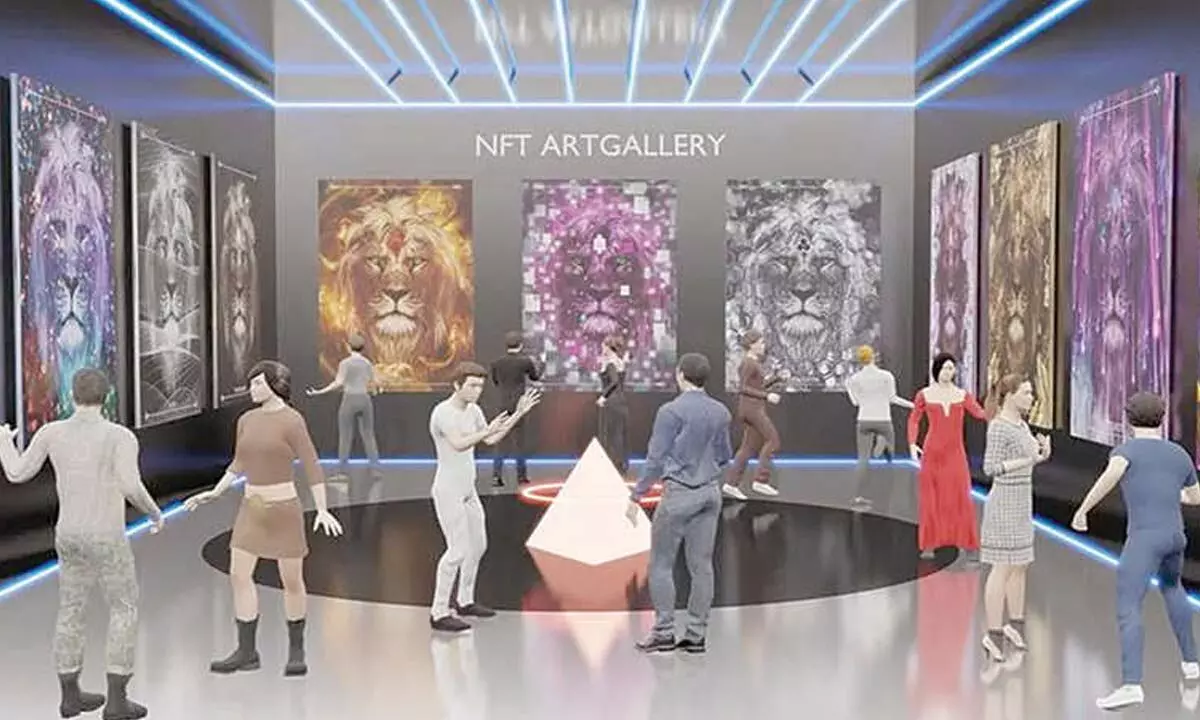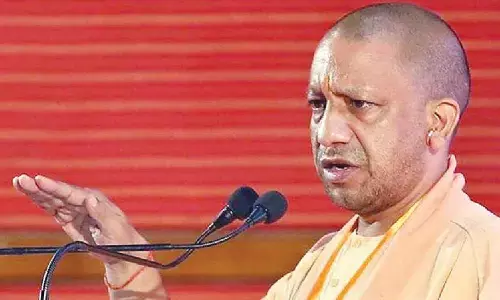AI and the future of immersive experiences: Bridging tangible and intangible heritage

In an era where technology is reshaping almost every facet of our lives, the integration of artificial intelligence (AI) into the world of art and cultural heritage is proving to be transformative
In an era where technology is reshaping almost every facet of our lives, the integration of artificial intelligence (AI) into the world of art and cultural heritage is proving to be transformative. A recent viral video vividly demonstrated this when AI brought Van Gogh’s famous painting “Café Terrace at Night” to life, converting the iconic artwork into a real-life film experience. Through the use of AI, viewers were able to virtually step into Van Gogh’s universe, immersing themselves in the vibrant atmosphere of the café as if they were there in person. This creative endeavor not only showcased the power of AI but also signaled the birth of a new era of art, where technology plays a pivotal role in broadening the scope of human creativity and offering unique expressions that blend traditional artistry with cutting-edge innovation.
The possibilities AI offers in creating such immersive experiences are endless. As artists and technologists continue to explore the potential of AI, we are likely to witness a surge of creativity that will forever change how we understand and interact with art. However, this is only the beginning. Beyond the world of art, AI is poised to revolutionize the way we experience both tangible and intangible cultural heritage.
AI and the Preservation of Heritage
The potential for AI to enhance our connection with heritage—whether through digital reconstructions of ancient sites or the preservation of cultural practices—is remarkable. One such initiative is the Indian Digital Heritage (IDH) Project, launched by the Department of Science & Technology (DST), Government of India. This project aims to digitally document and interpret Bharat’s vast cultural heritage, encompassing both tangible and intangible aspects, such as monuments, art, architecture, and historical knowledge. By employing technologies like computer vision, 3D graphics, and audiovisual tools, the IDH Project sets the stage for a new way of preserving and experiencing heritage.
AI’s role in this domain is transformative because it goes beyond simply cataloging and storing information. For instance, AI algorithms can recover the 3D geometry of heritage monuments from image collections, even reconstructing missing parts of plundered or damaged structures. This application is crucial, particularly for heritage sites that have deteriorated or been destroyed due to conflict, natural disasters, or the ravages of time. With the help of AI, these sites can be virtually restored, offering people the opportunity to experience these historical treasures in ways that were previously unimaginable.
A Multidisciplinary Approach to Heritage Preservation
Recently, many innovative and interactive initiatives have exemplified the integration of AI and emerging technologies to enhance the documentation and preservation of cultural heritage. Heritage preservation brings together scientists, engineers, artists, historians, archaeologists, and other humanities experts to collaborate on developing digital tools for preserving and experiencing the country’s heritage in digital form. This multidisciplinary effort has created not just a database of information but an immersive, interactive experience for users. AI-driven tools have been developed to allow art historians, architects, and researchers to study heritage in greater detail, using data analytics and advanced visual simulations to provide insights into cultural and historical knowledge. This collaboration extends beyond academic circles. Government agencies, custodians of Bharat’s vast heritage, play a critical role in enabling this multi-institutional and multidisciplinary approach in the long run. Private agencies, including those in the tourism sector, also see the potential for AI to enrich cultural tourism, offering visitors a more engaging and meaningful experience of heritage sites. By involving all these stakeholders, the project not only preserves heritage but also creates new opportunities for people to connect with and learn from it.
Immersive Technologies and the Future of Heritage Experience
As AI continues to develop, it is revolutionizing how we interact with heritage. Through the use of immersive technologies like virtual reality (VR), augmented reality (AR), and mixed reality (MR), AI can create vivid experiences that allow people to engage with heritage sites in ways that transcend physical limitations. Imagine being able to virtually walk through a historic temple, seeing not only its present-day form but also a digitally reconstructed version of how it looked centuries ago. This experience, enriched by AI-generated visualizations, can offer an unprecedented connection with history, bringing the past to life in a way that feels tangible and immediate. Moreover, AI can help preserve intangible heritage—those cultural practices, rituals, and traditions that are passed down through generations but are often at risk of being forgotten in the modern world. By recording and analyzing these practices, AI can ensure that they are preserved for future generations. In the same way that AI brought Van Gogh’s “Café Terrace at Night” to life, it can revive the stories, songs, dances, and customs of cultures around the world, offering immersive experiences that allow people to engage with these traditions in a deeply personal way.
The Ethical Implications of AI in Heritage
However, with the growing influence of AI in art and heritage come important ethical questions. As AI takes on a more prominent role in the creation and preservation of cultural heritage, it raises concerns about authenticity, authorship, and ownership. Who owns the AI-generated reconstructions of heritage sites? How do we ensure that these digital recreations remain faithful to the original, and who decides what is preserved and what is left out? These are complex issues that must be addressed as we continue to explore the possibilities of AI in heritage preservation. Another ethical consideration is the potential for AI to overshadow human creativity. While AI can serve as a powerful tool for artists and heritage professionals, it is essential to remember that the essence of creativity and cultural expression is fundamentally human. AI can enhance our understanding of heritage, but it cannot replace the human stories, emotions, and experiences that are at the heart of culture. As we move forward with AI-driven heritage projects, we must ensure that the technology is used to augment, rather than replace, human creativity and cultural knowledge.
AI as a Force for Good in Heritage
AI is not just a tool for artists or a means of preserving heritage—it is a powerful force that can transform how we experience culture. By bridging the gap between the tangible and intangible, AI offers new ways of engaging with art and heritage, creating immersive experiences that bring the past to life while preserving it for the future. As we continue to explore the potential of AI in this domain, we must ensure that it is used ethically and responsibly, preserving the rich diversity of human culture while offering new opportunities for people to connect with their heritage in meaningful ways.










